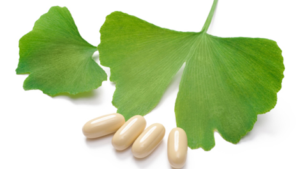Pulsatile tinnitus refers to a sound that is generated in the ears as a result, usually, of blood flow problems. This causes the sound to vary with your heartbeat. Dr. Stephen Geller Katz a top Manhattan tinnitus treatment psychotherapist, explains that your pulsatile tinnitus may occur in only one ear. “Although it is sometimes difficult to determine the cause of tinnitus, pulsatile tinnitus is usually the result of a problem with blood flow to the ear.”
Pulsatile Tinnitus is Caused by Blood Vessel Disorders
The heart usually beats between 60 and 100 times each minutes, and that heartbeat is reflected throughout the circulatory system. If you have a problem with your blood vessels, such as a tumor pressing down on a blood vessel or a cholesterol plaque that is partially occluding a blood vessel, this can result in pulsatile tinnitus with each heartbeat. Even high blood pressure can result in changes in tinnitus as a result of your blood flow. This is why Dr. Stephen Geller Katz, one of New York’s top tinnitus treatment psychotherapists, recommends patients with tinnitus avoid things like caffeine or alcohol, which have an effect on blood pressure. Some people develop tinnitus as a result of an abnormal connection between the arteries and the veins. This is known as an arteriovenous malformation, or AVM, and usually only occurs in one ear.
Classification of Pulsatile Tinnitus
Pulsatile tinnitus can be caused by atherosclerosis, an aortic dissection, aneurysms and other abnormalities of the blood vessels. These can include a proliferation of blood vessels near a tumor. There are many reasons for pulsatile tinnitus, and they are usually classified as “arteriovenous,” “venous,” or “arterial,” depending upon the type of abnormal blood vessel.
Medications for Treatment of Tinnitus
There are a variety of medications used to treat tinnitus, and some of these medications that affect the blood vessels include diuretics (fluid pills) like Lasix, and other pills for blood pressure that include verapamil and nimodipine. Stress reduction with medications like Valium or clonazepam may also cause blood pressure reduction.
Surgical Treatment of Tinnitus
There may be some circumstances in which surgical treatment of tinnitus is useful. Most of these circumstances occur when the patient is suffering from some form of pulsatile tinnitus. For example, if the tinnitus is the result of abnormal blood flow through a vein, the vein may be interrupted, or ligated. Sinuses and abnormal blood flow can sometimes be corrected surgically. An aneurysm may be repaired and tinnitus can diminish as a result. Pulsatile tinnitus is also sometimes classified as objective, as there are real changes in blood flow that can be heard by a practitioner, not just by the patient.
Diet Can Be Helpful
Patients who experience pulsatile tinnitus as a result of blood flow abnormalities can reduce symptoms by reduction of salt in the diet, in order to reduce blood pressure. Abstinence from substances like caffeine and nicotine, both of which increase blood pressure, can be helpful, says Dr. Stephen Geller Katz , a leading Manhattan tinnitus treatment psychotherapist.
 If you are suffering from pulsatile tinnitus, call today for your appointment with DrStephen Geller Katz , a leading New York City tinnitus treatment psychotherapist. Help is available for tinnitus, so call for a consultation with an expert in the treatment of tinnitus.
If you are suffering from pulsatile tinnitus, call today for your appointment with DrStephen Geller Katz , a leading New York City tinnitus treatment psychotherapist. Help is available for tinnitus, so call for a consultation with an expert in the treatment of tinnitus.
Call today for a free 15min phone consultation 646-213-2321
 Do you feel your family and friends don’t understand?
Do you feel your family and friends don’t understand?


